TDU Power of Research 2
TDU has been developing highly intelligent professionals with advanced specializations to provide wide-ranging support to the knowledge-based society. Our research laboratories have supported the training of many outstanding technical experts.
Here, TDU introduces the practical aspects of its research laboratories.
Research Laboratories
The most distinctive feature of the Japanese engineering education
As the integrated institution for science and technology, TDU comprises a wide range of academic disciplines and cutting-edge research and development. These research activities are supported by 225 research laboratories for science, engineering, and social and human sciences.
Our teaching staff, graduate students, and fourth-year undergraduate students working on their graduation projects make up the research laboratories, pursuing their own specialty areas under shared research topics. The research laboratories are places where students can deepen their own studies while encountering a variety of opinions and thoughts.
Laboratory for Information Security and Safety
Towards the realization of a secure and user-friendly information environment
 Professor Hirofumi Yamaki
Professor Hirofumi Yamaki
Department of Information System Engineering
School of System Design and Technology
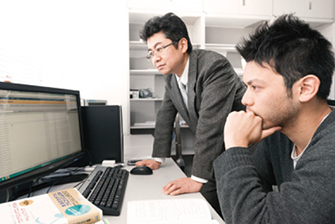
We aim to realize a secure and user-friendly information environment based on computer networks and artificial intelligence. The advancement of computers and networks has enabled fast and rich communication among people. On the other hand, cyber-attacks and cyber-crimes have become major threats to human lives over the same period.
Cyber security technologies are remedies for such situations, but, at the same time, they tend to limit the usefulness of information and communication technology. We believe artificial intelligence (AI) can be a solution to resolve such trade-offs. We develop a smart authentication mechanism which is mainly meant for public WiFi access services,
where new standards such as IEEE 802.11u or FIDO are utilized for providing easy and secure Internet access and smart software agents help users in secure and easy access to such systems. We also work on AI-enabled cyber security. Recent cyber security solutions have begun to utilize AI for the detection of and the protection against cyber-attacks, while attackers are beginning to apply AI for their own purpose. In the near future, the confrontation between cyber-attacks and defenses will be that among AI-enabled systems. We are building a simulation system to analyze such situations.
Energy and Environmental Systems Laboratory
Pursues the study of green power impact assessments and the most effective way of supplying regional power
 Professor Masakazu Kato
Professor Masakazu Kato
Department of Electrical and Electronic Engineering School of Engineering
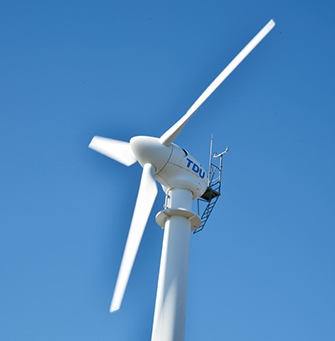
The main research themes in the Energy and Environmental System Laboratory are planning, operating, controlling energy systems, and environmental assessments. Our program especially addresses the assessment of recyclable energy and how to take countermeasures against the negative effects when they are detected. We objectively conduct research regarding what will happen to our society when photovoltaics and wind electricity become more prevalent, and how we can promote such green power technologies if they have caused any concerns.
Another important research topic is “smart communities,” a theme we cover in a cross-disciplinary manner within TDU, conducting research to promote regional optimal design for not only electricity generation but also thermal energy and transportation infrastructure. The purpose is to establish efficient energy systems that are also cost-effective, such as the use of waste-driven electricity systems for power generation. We seek opportunities to provide electricity to local communities from waste disposal centers, during the aftermath of huge natural disasters that interrupt ordinary electricity supplies.
Architecture and Design Laboratory
Drives research that regards “architectural planning” and “environmental behavior” as two sides of the same coin
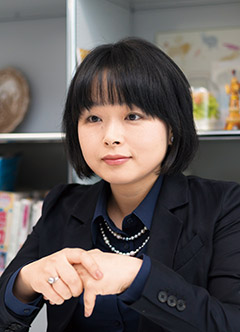 Associate Professor Asuka Yamada
Associate Professor Asuka Yamada
Department of Architecture
School of Science and Technology for Future Life
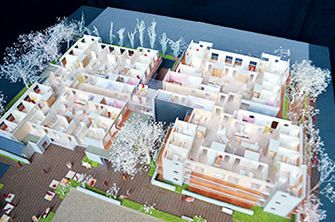
Our laboratory, which specializes in architectural planning and environmental behavior research, has been studying educational, medical, and welfare facilities. Our goal is to support people who are easily affected by their environment, and to accommodate their independent lives by improving their surroundings.
In Architectural Planning, our team studies prior phases of execution design, such as identifying a building’s target users and uses, usability, security, and comfort, and then provide recommendations to the property owners, or our clients, based on our research.
In Environmental Behavior, on the other hand, we focus on the relationship between humans and the environment itself, and study human psychology and behavior under certain settings.
Conducting research that integrates both architectural planning and environmental behavior studies provides a broader perspective for the future needs of society and helps us predict what kinds of buildings we may need to construct beyond the current paradigm (for example, school facilities should be planned with considerations beyond a construction framework and should take into account the population and purpose of those schools). As a result, we can provide fruitful recommendations to prospective stakeholders. For instance, we designed a facility for elderly people and a playroom for children in a medical facility in conjunction with the concerned parties.
Cellular Biochemical Laboratory
Conducts research regarding cellular life cycles, making contribution to the medical sector, such as cancer management
 Professor Yukitoshi Nagahara
Professor Yukitoshi Nagahara
Division of Life Science and Engineering
School of Science and Engineering
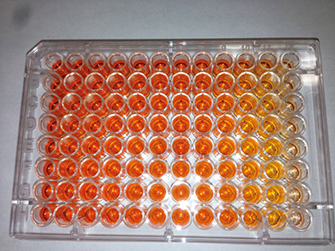
We are focusing on the cellular function during cellular life – from birth, growth, differentiation, and finally, death.
Programmed cell death, or so-called apoptosis, occurs to eliminate unnecessary cells (reaching the life expectancy or suffering injury and cannot function normally) for the body. The dying cell is eaten by the phagocytes and extinguishes itself. Once these cellular suicide mechanisms are collapsed, abnormal cells, unwanted by the body, multiply and various diseases like cancer occur. Therefore, cell death mechanism is well preserved among species and strictly regulated. Unraveling cell death pathways leads to artificially provoking cell death to particular cells, such as cancer cells, aiding the discovery of anti-cancer agents. We are currently researching the cellular function of several cancer cell specific apoptosis-inducing chemicals to elucidate how these chemicals induce cell death to specific cancer cells in the cellular level using both a molecular and chemical biology approaches.
Related content
- Undergraduate Schools
- School of System Design and Technology
- School of Science and Technology for Future Life
- School of Engineering
- School of Science and Engineering
- Graduate Schools Overview
- Graduate School of System Design and Technology
- Graduate School of Engineering
- Graduate School of Science and Engineering
- Graduate School of Science and Technology for Future Life
- Graduate School of Advanced Science and Technology
- International Program(Doctoral Course)